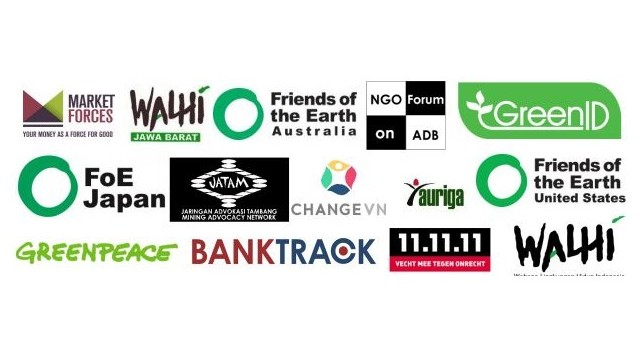Open letter calling on DBS, OCBC and UOB to take action on climate change

We, the undersigned organisations, representing approximately 896,341 people, are deeply concerned about the environmental and social impacts of a growing fossil fuel-based energy system.
Globally, a growing number of financial institutions are taking action to support the goal of the Paris climate change agreement by implementing policy that restricts and excludes lending to highly carbon-intensive sectors such as coal.
Governor of the Bank of England, Mark Carney, has termed climate change a ‘huge’ financial risk and in 2017 announced that the Bank of England will probe banks’ exposure to climate risk. However, Singaporean banks are falling critically behind, not only failing to deliver policy and practical responses to climate change, but instead becoming an increasing part of the problem through the continued multi-billion dollar financing of coal-fired power stations and related infrastructure.
Singaporean banks have also been implicated in a number of controversial deals for coal-fired power stations in Southeast Asia, which would lock in decades of pollution. World Bank president, Jim Yong Kim, has warned that plans to build more coal-fired power plants in Asia would be a “disaster for the planet” and overwhelm the deal forged at Paris to fight climate change.
Other impacts of coal such as air pollution are creating major environmental and health risks for the people of South East Asia. A study published by researchers at Harvard University in 2017 estimates that by 2030 coal pollution alone will contribute to 19,220 deaths annually in Vietnam and 24,400 in Indonesia. New coal-fired power stations are particularly unacceptable given the potential for clean renewable energy to meet projected energy demands.
In stark comparison to the Singaporean banks, 14 banks globally have ended direct financing of new coal plants worldwide, including BNP Paribas, ABN AMRO and Deutsche Bank. Moreover, unlike 92 of their global peers from 37 countries, no Singaporean bank has adopted the Equator Principles, which provide a minimum standard for due diligence in financing projects such as coal power plants.
As you will be aware, the Singaporean Government has declared 2018 to be the Year of Climate Action. We are calling on Singapore’s banks to help make this a reality. As a starting point, Singapore’s major banks should recognise that holding global warming below 2˚C requires halting the expansion of the fossil fuel sector, and following the lead of their European and North American counterparts by excluding all forms of support for new coal power plants.
Signed by:
11.11.11 Belgium
AURIGA Nusantara
BankTrack
CHANGE Vietnam
Friends of the Earth Australia
Friends of the Earth Japan
Friends of the Earth US
GREENID Vietnam
Greenpeace South East Asia - Indonesia
JATAM Indonesia - Jaringan Advokasi Tambang
Market Forces
NGO Forum on ADB
WALHI West Java
WALHI Indonesia
This letter can be downloaded as a PDF here.
